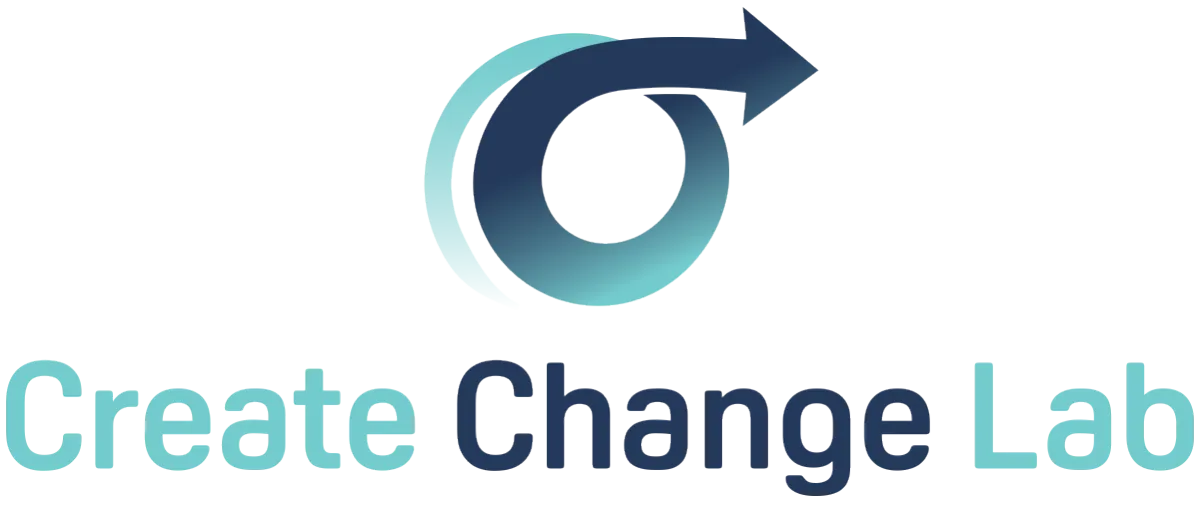About
About
When I was first diagnosed with Parkinson's Disease in the late summer of 2024, I knew that it was coming. Not only had I been experiencing symptoms for about 5 years -- lack of arm swing when walking, slowness, stumbling, lost of strength in my right arm and leg...-- but because it runs in my family: both my mother and father were diagnosed with PD in their later years, and my sister in her late 50's. I haven't tested for the marker gene, because whatever the marker is, it just represents a tendency that can be triggered or subdued by environmental and lifestyle factors. That's epigenetics, and the reason to be proactive: What I do matters.
Epigenetics is the study of how the environment and other factors can change the way that genes are expressed, beyond how the DNA is written. About 15% of Parkinson's patients have a family history of the disease, while only 5-10% are thought to have one of the genetic mutations that can predispose one to the disease (LRRK2, PARK2, PARK7, PINK1 or the SNCA gene).
The Before Times
Professionally, I work in the field of Public Health Communications (aka Behavior Change Communications or Social Marketing), and teach in the Master of Public Health program in the Larner College of Medicine at the University of Vermont. I have a doctorate in Educational Leadership and Policy Studies and a Master's degree in Media Ecology. When I trained to be a Health Coach in 2015, the background in the theories of behavior change and research-based best practices, as well as curriculum development, set me up for taking action on the epiphany I was about to have.
In 2016, I was researching a book that brought together these two interests: media and health. The focus was how the media--and advertising in particular--has created a food culture where convenience is the predominant value. In particular, I was deep into studying the tactics of Big Sugar, and how the repetition of images of kids eating sugary cereals on television has made parents and kids think that cereal is an easy and healthful breakfast -- when nothing could be farther from the truth -- when I had an epiphany in a grocery store.
I was finished with my grocery shopping and looking for a snack to eat in the car on the drive home (that's why they put the candy by the checkout!). As I was reaching for the dark chocolate peanut butter cups, I heard myself say, "You can have that, you worked out today." Now, that's something I've said to myself a hundred or a thousand times before, but since I was studying the sugar industry I was able to identify that it wasn't my rational brain talking. That's when it hit me: That's the Sugar Talking! I stood there in the middle of the market for several minutes, dumbfounded. Have I been addicted to sugar this whole time and not realized it? Are all the rationalizations and justifications for having treats consistent with other forms of addiction? How is it possible that sugar is talking to me? It was right then that I decided to change the focus of my research from advertising and policy to biology. And I was going to unravel my sugar addiction, and teach others how to do it too.
It took me two years to heal my dependency on sugar, and I created my first course Breaking Free from Sugar in 2019. To date, over 4,000 people have taken that course, with over 95% of them reporting they were successful reducing their sugar consumption and planning to continue with a sugar-minimal lifestyle. Then I wrote a book about it called The Sweet Tooth Dilemma, which became a bestseller on Amazon.
Because of that experience of healing took two years until I felt like I was on solid ground -- changing 35 years of habits, beliefs and biology doesn't happen over night -- I figure that might also be the case with PD. if I dedicate myself to learning, and experimenting with changing all the lifestyle and environmental factors within my control, that I can reverse the symptoms of Parkinsonism. And I'm giving myself two years to try (though really I won't stop trying :).
Where I am now
When I was officially diagnosed with PD in the late summer of 2024, I went through an emotionally tumultuous period, alternating self-pity and defiance. I joined the Facebook Group on Alternative Healing for Parkinson's, started following organizations and websites (see Resources tab), and generally started experimenting. I had heard that vigorous exercise was one of the only documented ways to slow the progression of the disease, so I started raising my workout game: got a Peloton bike (to use in addition to the weight training classes) and started Rock Steady, a boxing program for people with PD.
Then, in the late fall, I developed a habit of easily-triggered crying. The smallest mention or thought of having PD would send me into uncontrollable waves of tears. It felt like they were coming from my chest. Just flooded with emotions, a mix of grief, feeling sorry for myself, opportunity lost, feeling like something had been taken away from me, and even a bit of resentment -- why me, I'm so healthy?!
The months of crying came to a peak on New Year's Eve. We went out to a Talking Heads tribute band, with the youthful excitement of dancing in the New Year. Except the minute I stepped on to that dance floor, the sobbing started and barely let up for several hours. You see, I was a dancer -- not a professional dancer but a freestyle dancer, who loved to go out dancing and lose myself in the music. I used to pride myself on being able to dance to any type of music. It was a cherished form of tension release, creative expression, and often a workout too. It was the one place I could get out of my head and into my body. But on New Year's' Eve, my body was having none of it. I could barely sway to the beat let alone dance to those well-loved songs in rhythm..
I suppose that was my emotional rock-bottom, because I woke up the next morning with resolve:
- I'm not going to feel sorry for myself anymore
- I'm going to learn and do everything I can to feel the best I can
- I'm going to figure stuff out and share it with the PD community
I am sharing my journey publicly in case I actually am successful in reversing the disease there will be a record, and also to let others with PD share in my up days and down days. We need to stay resilient.
My approach is systems-based, and starts with the assumption that the rise of PD (and other neurological disorders including Alzheimer's) is not natural to ageing: it is our food, our environment, and our lifestyles are creating disease in the body. It is a functional medicine/nutrition approach that looks to address the root causes rather than merely address symptoms.
I don't have anything against addressing symptoms directly too -- I am currently taking a small dose of carbidopa/levidopa.
It is my current mission: to explore, test, and share what works.
Thanks for reading.
See Recent Posts from my Health Coaching Blogs
[PD Blog starting soon!]

Are You an Over-Giver? How to Reclaim Your Energy and Your Sovereignty
When Giving Becomes a Reflex
When her last child left for college, Christine thought she’d finally have time for herself. After 25 years of raising kids, full-time work, and volunteering, she pictured making time for long walks, art classes, maybe even that trip to Italy she’d dreamed of.
But within weeks, her calendar filled again—helping with fundraising events, taking on extra projects at work, and always available when someone needed a favor. Whenever someone needed help, Christine was the first to say “yes.” She liked being helpful and generous with her time. It was part of her identity.
It was also a learned survival mechanism. She learned early in life that “being helpful” was a way to gain accolades and feel needed. What she wasn’t conscious of, however, was that all the external validation was a substitute for self-validation. When she was feeling helpful, it took her attention away from herself, and the persistent feelings of not being enough.
The over-giving also had its physical consequences. To compensate for all the energy spent serving others, she was deeply dependent on “treats,” “rewards,” and feeling like she “deserved” them. The habit of “treating” herself was serving as self-care and masking the discomfort of being out of balance with her energy.
The result? Health issues: 20 pounds overweight, pre-diabetic, brain fog, and a growing fear of not ageing well. People come to me to get off sugar and refined carbohydrates, but what they get is self-empowerment and a reclaiming of their personal sovereignty.
If you see yourself in Christine’s story, you might be an over-giver—someone who’s built an identity around helping others, even when it comes at the expense of your own energy, health, or happiness.
Signs You May Be an Over-Giver
You feel guilty saying “no,” even when you’re exhausted.
You take responsibility for other people’s emotions or problems, and enjoy being known as reliable or a “fixer.”
You anticipate others’ needs before they ask—and feel uneasy when you’re not “useful.”
You downplay your own needs or desires (“It’s fine, I don’t need that”).
You sometimes feel resentful but keep giving anyway.
You equate worthiness with productivity or service.
Over-giving often stems from beautiful qualities—empathy, responsibility, generosity—but when it becomes a reflex rather than a choice, it leads to depletion, resentment, and disconnection from your own self.
The Roots of Over-Giving: When Approval Becomes a Currency
Over-giving and people-pleasing are two sides of the same coin. They often originate in early life, when we learn—explicitly or implicitly—that love and approval are earned through helpfulness, compliance, or emotional caretaking.
Maybe you were the “responsible one,” praised for keeping the peace or taking care of others’ feelings. Over time, those early lessons harden into a belief: I am valued for what I do for others, not for who I am.
As adults, this pattern can manifest as:
Saying yes when you mean no
Avoiding conflict to keep others comfortable
Taking on extra work to prove reliability
Feeling uneasy when you rest or prioritize yourself
Measuring your worth by your usefulness
People-pleasing is not weakness—it’s an adaptive strategy. It helped you stay safe, loved, or accepted. But now, that same strategy may be keeping you small, tired, and disconnected from your deeper desires.
Reclaiming your sovereignty means recognizing that your value isn’t conditional. You are allowed to take up space, to rest, to receive, and to say “no” without guilt.
The Hidden Costs of Over-Giving
Chronic over-giving can manifest in both emotional and physical ways:
Burnout or fatigue that never seems to lift
Mood swings or a sense of dullness—like you’ve lost your spark
Resentment or martyrdom (“After everything I do, no one appreciates it”)
Loss of direction or identity, especially after a major life transition like retirement or an empty nest
Health challenges linked to chronic stress or suppressed emotion
When giving becomes a survival strategy instead of an act of love, it disconnects you from your sovereignty—the quiet inner knowing that says, I matter too.
Reclaiming Your Personal Sovereignty
Here’s where the healing begins: not by swinging to the other extreme and cutting everyone off, but by rebalancing how and why you give.
Pause Before You Say Yes.
Ask yourself: Is this mine to do? or Am I saying yes out of love—or out of fear of letting someone down?Notice the Energy Exchange.
Healthy giving feels expansive; over-giving feels draining. Start tracking how your body feels after interactions. Your nervous system is a powerful truth-teller.Reconnect With Desire.
Make a list of things you want—not what others need from you, but what lights you up. Small pleasures count.Practice Receiving.
Let someone else help for once. Allow yourself to rest without earning it.Redefine Your Worth.
Your value is not measured by how much you do for others. It’s measured by how aligned you are with your truth.
From Over-Giver to Sovereign Giver
When you reclaim your sovereignty, giving becomes a choice again—not a compulsion. You can still be generous and kind, but from a place of overflow instead of depletion.
You start to realize:
Saying no to what drains you is saying yes to what heals you.
And from that place, you don’t give less—you give better.
Next Step: Reclaim Your Energy
If this resonates, it may be time to explore what’s underneath your patterns of over-giving—and learn how to restore your energy and clarity.
✨ Book a complimentary Discovery Call with me. Together, we’ll look at what’s keeping you overextended and create a path back to balance, sovereignty, and joy.

© 2025 Create Change Lab, LLC and Andrea Grayson. All Rights Reserved,

